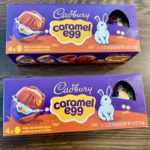*****************************************************************
A young man named Sean Fisher came up after a library show and asked if he could write a term paper about me for a music class at Sac. City college. He sent me some questions to answer and the rest was up to him. Here is the resulting paper. Maybe this will be informative as well as entertaining. Thanks, Sean. Good job, well done.
*****************************************************************
Sean Fisher
Dr. Dennis Weber
MUS 327
2 March 2014
Mister Cooper: Music That Teaches
I walk into a room full of children ages, 6 and younger, laughing and playing and some crying. An older man sits at of the front of the room with an acoustic guitar strapped over his body talking with a couple of the young children. At 4:00 pm every Wednesday, the man with the guitar begins singing a song called “Good Afternoon” and the children start to calm down and sit on the floor. The man singing is Ken Cooper, better known to the children as Mister Cooper. Mister Cooper has come to the Belle Cooledge Library in Sacramento, CA, to serenade these children with fun, interactive and educational music for the next 30 to 40 minutes. As he finishes “Good Afternoon” be begins with a song that teaches the months of the year, and the children start to sing along. He asks the children to cheer with a fist pump when they sing the current month. After the first round of months every child has their hands in the air every time they sing “February.” It seems obvious that Mister Cooper has been doing this for a long time. He controls the kids and helps maintain their focus for the next 30 minutes. As the show progresses on, Mister Cooper gets the kids to participate more and more as he sings songs loved by the children and the parents. A room of 40 or more people are singing such fun songs as “Matilda the Gorilla,” “Dr. Seuss is on the Loose,” and classics like “I’ve Been Working on the Railroad.” He ends every session with an acoustic medley of dance worthy music, in which he asks the children to stand up and dance. As he opens with a fun pop sounding beat, he explains the rules for safety to the children. And that when he says, “Freeze!” the music stops and the kids must pause. The kids listen well and freeze in funny poses as he stops the music. As soon as he starts again the children begin dancing. Mister Cooper then switches to a funk sounding guitar riff. As the show winds down, Mister Cooper invites the children to come up and get a hand stamp. The stamp is his way of signing autographs for the kids. He says a lot of them by name (he has a steady group of followers at Belle Cooledge) and thanks them for coming. It is easy to see why Mister Cooper is so loved by the children and the parents who frequent these sing along events. He shows through music that learning can be fun and easy.
Ken Cooper has been performing educational children’s music for over 18 years now. He began performing in schools when his son entered Kindergarten and he volunteered to teach music for his class. He has released four albums over his career and has recently been added to Pandora Radio, the internet radio site. He began performing at 14 when he played the bass guitar in a high school cover band. They performed songs from Chicago and Blood, Sweat, and Tears. When I asked him which past musicians inspired him as a youth he named the Beatles, Lovin’ Spoonful (his favorite American band), and lots of Motown. He mentioned that he enjoys fellow children songwriters Frances England and Dan Zanes. He also enjoys the Wood Bothers, Todd Snider, and Ron Sexsmith. He stated that an influential artist outside of America was musician Bob Marley. “The kids love to sing ‘3 Little Birds,’” Mister Cooper tells me, “I like reggae music and his message is still powerful today, more than 30 years after his death.” When I asked him what made him start singing educational children’s music, he responded, “I saw there was a need for kids to experience live music and learn to read at the same time. I began writing songs to reinforce what students were learning in the classroom…” It is a message that can be heard in his music and also seen in the marketing of his music.
On his website, www.mistercooper.com, he states his music is “songs that teach” and he offers a lot of programs throughout the community. Currently, Mister Cooper performs at seven elementary schools and three libraries in Sacramento. He also sings at two preschools where he emphasizes his music around early literacy, movement, and learning social skills. In songs like the “Circle of Seeds”, Mister Cooper teaches biology by describing how to plant a seed and help it grow into a plant. In his song, “Yes, I Can,” he sings about finding your self-confidence. During a session about Martin Luther King, Jr., Mister Cooper sang “We Shall Overcome.” He told me in an interview that he was blown away when the children sang back to him, and that hearing the kids sing “brings joy to his heart.” In a report taken from www.eduguide.org, the author states that preschoolers were able to learn the parts of the body easier through songs and dance as opposed to typical lessons or even lessons that required movement but no music (Kingsbury eduguide.org). It is obvious by the way Mister Cooper gets literally down to the children’s eye level to perform that he is extremely passionate about his music and his audience. It also shows that he understands how a child’s mind and body work. His show begins with minimal movements and ends with the kids dancing around the room. He understands that there attention span is limited and his show progresses nicely over thirty minutes. He keeps them engaged the entire time and the kids leave the show in great spirits. This is what helps his music be an effective teaching style for children who are often exposed to more pop culture than educational music.
Mister Cooper’s music would most likely be considered folk music. It is not music you would hear on your local disc jockey-run radio station. It is not music you would find on Radio Disney, the popular AM radio station strictly geared for children. Folk music in general has not been mass marketed in the mainstream media. Some singers such as Bob Dylan and Johnny Cash have made their name in the genre. Folk music encompasses the community aspect of a music culture. Often folk music is celebrated in festivals, sometimes government funded (Titon, Jeff p.24). These songs typically have a country style feel to them. They make good use of the acoustic guitar. Some different instruments you would hear in typical folk music are bass, drums, and piano. The banjo, accordion, and harmonica are also instruments found in common American folk music. Mister Cooper performs his solo shows with an acoustic guitar, but in his albums you hear these other instruments. He told me in the interview that he often plays multiple instruments which require hours of recording when making an album. He also said that live performances are a lot more special than the recording studio sessions. As with most folk music, the connection to the audience seems more intimate than with mainstream pop culture music.
A lot of music is geared for children. From lullabies to Disney movies, we are exposed to music before we even enter this world. In past decades music was a standard part of school curriculum. However, as budget cuts keep happening in schools, the arts programs that are funded are usually the first thing to get cut. Most parents do not know about artists like Mister Cooper and the fact that music is still be applied to basic learning skills. Most children are exposed to pop culture or music their parents listen to. Most times people find out about artists like Mister Cooper through media such as fliers, website, or word of mouth. Mister Cooper does not make a lot a ton of money. He does not have a major record label contract. He performs his music for his love of the children. When asked what was most challenging about his music career, he said it was finding his niche in children’s music. Before that he struggled as a musician. I then asked him what was most rewarding about his career, and he answered that it was the longevity of his 18+ year career. He has no plans to slow down.
When I approached Mister Cooper and asked him to do this interview with me, he was stamping kids hands after one of his library shows. He handed me a card with his email address on it. I sent him an email with 15 questions on it. He responded the next day with an answer to each question. I took my five year old daughters to his show the following week, their second time seeing Mister Cooper. After stamps, we decided to buy a CD. I was amazed how much of the words and movements they remembered. They also were able to explain the seed cycle, sing the days of the week forwards and backwards, and the months of the year. They also rediscovered their love of Dr. Seuss again. Even now, two weeks later, they are singing “Matilda the Gorilla” and other songs they heard at Mister Cooper’s shows. We have even put on his Pandora station. It is important we find ways to make learning fun and engaging for our children. It is also important we show our children music not found on mainstream radio. Mister Cooper’s music and programs are a prime example of the kind of influential power music can have on the developing minds of our children.
References
1. Titon, Jeff Todd, and Cooley, Timothy J., and Locke, David, et al. Worlds of Music3rd Edition. Canada: Baxter 2009. Print
2. Cooper, Ken. MisterCooper.com. https://mistercooper.com/. Accessed 27 February 2014. Web. 2014
3. Kingsbury, Annette. “Music Education and Childhood Brain Development”. Eduguide. Accessed 27 February 2014. Web. 2014. http://www.eduguide.org/article/music-education-and-childhood-brain-development




